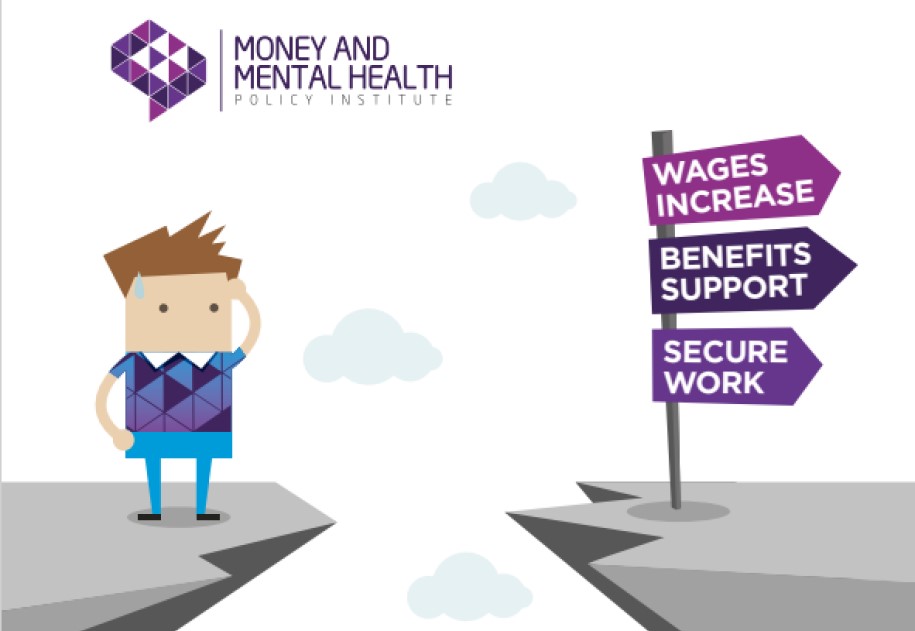Report: Mind the Income Gap
The first report revealed that people with mental health problems were entering the pandemic with lower average incomes and higher financial fragility. In this second report, we take a longer-term look at the labour market and social security system, to understand how outcomes in each drive the mental health income gap and the challenges people with mental health problems can face.
Key findings
- The income gap for those with mental health problems is significant – annual median income for people with common mental health conditions is estimated to be £8,400 less than that for the wider population.
- People with mental health problems are more likely to be unemployed, which has been driven in part by inflexible recruitment practices and discrimination from employers.
- When people with mental health problems are in work, they are more likely to be in the lowest paid occupations and face significant challenges in accessing higher paid jobs.
- People with mental health problems are more likely to receive benefits, which provide a low level of financial support and they have also been hit harder by the freeze in working-related benefits.
The report outlines several ways that employers can better support the mental wellbeing and, in turn, the financial wellbeing of employees.







